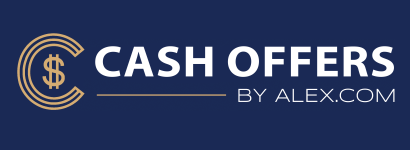When it comes to closing costs, there are disadvantages to a seller paying closing costs. In fact, there are more disadvantages than advantages.
Buyers and sellers have typical closing costs because that is typically seen as the fairest outcome. Below you can find what the typical closing costs are, a list of disadvantages of a seller paying costs, and a list of advantages of a seller paying closing costs.
If you have something I should add or change, please let me know in the comments below!
What Are Closing Costs?
Closing costs are the fees and total costs owed to the title company or attorney at the time of settling the sale of real estate.
Typical Seller Closing Costs
- Real estate agent commissions
- Loan payoff amount
- Transfer taxes and recording fees
- Owner’s title insurance policy premium and fees
- Copies of HOA governing documents, including CC&Rs and bylaws
- HOA dues, prorated to the settlement date
- Real estate taxes, prorated to the settlement date
Typical Buyer Closing Costs
- Loan fees, including the origination fee and discount points
- Lender’s title insurance
- Appraisal fee
- Property inspections
- HOA transfer fee
- Real estate taxes, prorated to the settlement date
Disadvantages of a Seller Paying Closing Costs
Although it might seem like a good idea for a seller to pay closing costs, there are some disadvantages that might not be obvious. If you’re considering having a seller pay all of the costs, be sure you keep in mind these 7 disadvantages:
1. Higher Costs for Seller
The most obvious disadvantage of a seller paying closing costs is that the seller will have higher costs.
2. Higher Sales Price
Because a seller will have higher costs, the seller might include those costs in the sales price of the property.
3. Higher Commissions
When the sales price of a property is higher, there will be higher commission fees due to the real estate agents.
4. More Interest Paid
When the sales price is higher, the buyer will be paying more in interest over time.
5. Bigger Down Payment
When the sales price is higher, you’ll need a bigger down payment meaning more cash out of pocket for the buyer.
6. It Might Not Appraise
When the sales price is higher, you have the risk of the property not appraising and the buyer might have to make up the difference.
7. Mortgage Approval Issues
Conventional, FHA, and VA Loans will have a maximum seller concession of 3%-6%.
Advantages of a Seller Paying Closing Costs
Although there are disadvantages of a seller paying closing costs, there are some times when it’s an advantage. The 3 advantages of a seller paying closing costs are:
1. Lower Costs For Buyer
When the seller pays for the closing costs, that’s fewer fees that the buyer will have to pay.
2. A Faster Sale
When you offer no closing costs, the property becomes more attractive to buyers and it will likely sell faster
3. Add Leverage During Negotiation
You can use paying for closing costs as leverage during a negotiation, especially when people over or underestimate the cost.
